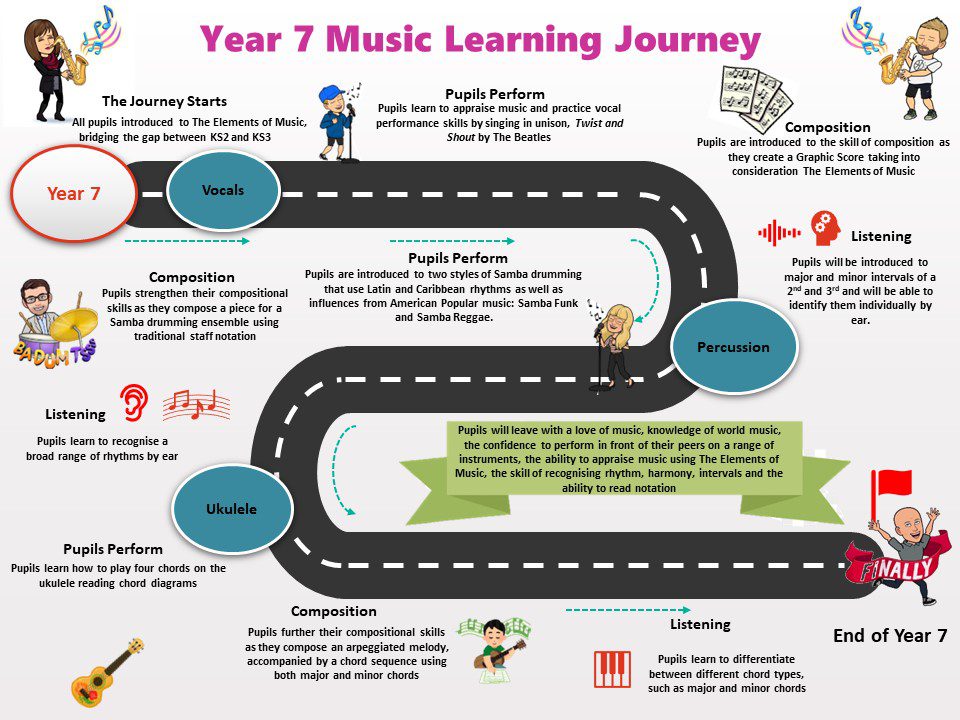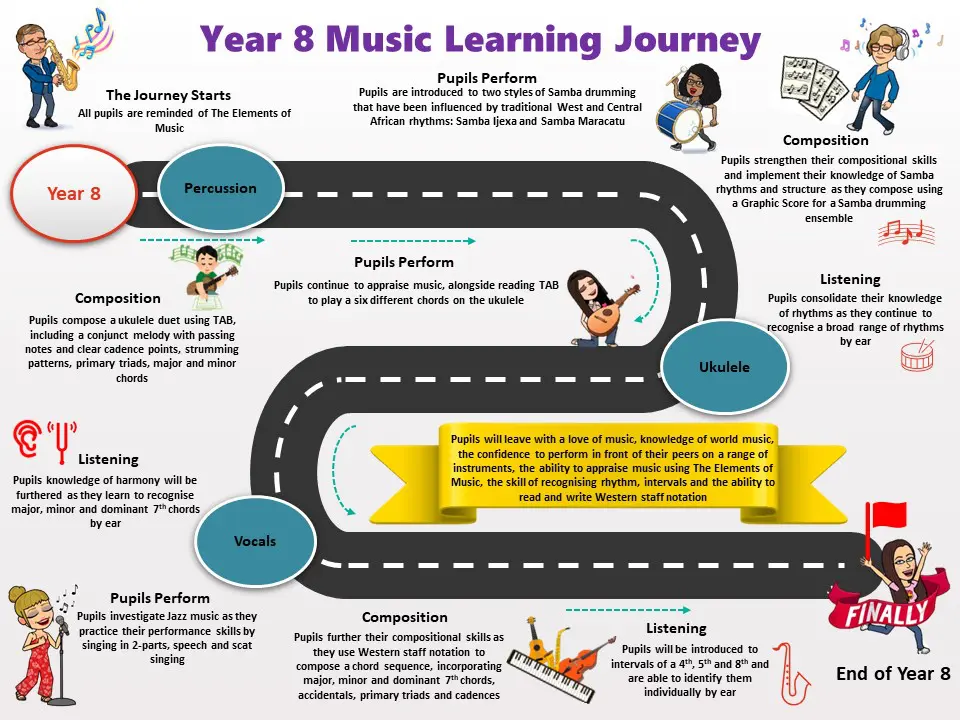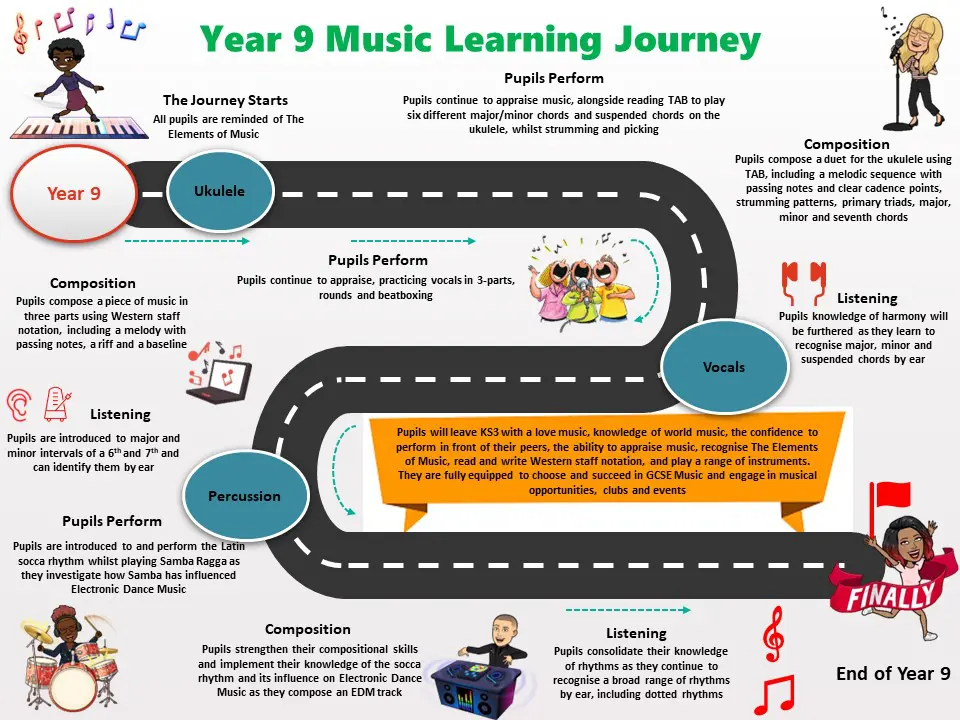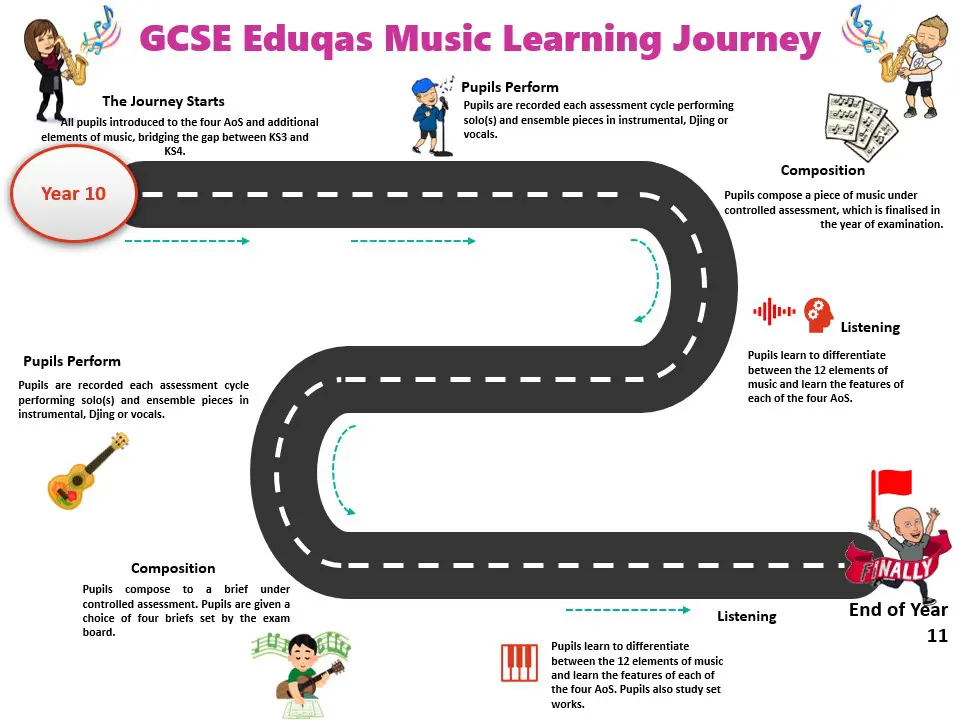| Music | |||||
| Intent | In Music, our intent is built on our belief that music learning works best when all pupils are making music within the classroom. All pupils, no matter what their ability or experience, are treated as musicians, and are supported to learn and develop inclusively at their own level. A singing strategy is at the heart of the department and vocal work plays a significant role in pupil development. Singing is one of the most positive forms of human activity, supporting physical, mental, emotional and social health, as well as individual development in the same areas. Successful singing is important because it builds self-confidence, promotes self-esteem, engages emotion, promotes social inclusion, supports social skill development, and enables pupils of different ages and abilities to come together successfully to create something special in the arts. Instrumental work is sequenced throughout the curriculum in the form of strings and percussion. The relevance of repertoire is chosen with pupils in mind, yet it also broadens pupils’ musical horizons. Musical activities contribute positively to the development of pupils’ vocabulary, numeracy and literacy skills. The music department has links to the music industry, which enhance opportunities with professional musicians, such as freelance musicians, further education establishments, local theatres and the South Tyneside & Gateshead Music Hub. Social and creative skills are nurtured within the classroom and also via extracurricular activities, such as the annual school production and termly Open Mic nights. Above all, we understand the importance of music in enhancing everyone’s lives and we aim for every one of our pupils to leave this school with a life-long love of music. | ||||
| 7 | 8 | 9 | 10 | 11 | |
| Topics |
-Vocals -Samba -Ukulele |
-Samba -Ukulele -Vocals |
-Ukulele -Vocals -Samba |
-Performing -Composing -Appraising |
-Performing -Composing -Appraising |
| Homework |
N/A
|
N/A | N/A |
Practice solo and ensemble piece; Complete composition on MuseScore or BandLab for Education; Revision using knowledge organisers; Revision using BBC Bitesize EDUQAS GCSE Music Theory
|
Practice solo and ensemble piece; Complete composition on MuseScore or BandLab for Education; GCSE set work practice questions; Teams quizzes; Revision using knowledge organisers; Revision using BBC Bitesize EDUQAS GCSE Music Theory |
Careers
Sound engineering
DJing
Choreography
Music publishing
Backing singer
Classical music
Arts administrator
TV and radio production
Radio presenter
Music journalism
Music therapy
Composing
Events management
Festival organising
Stage managing



